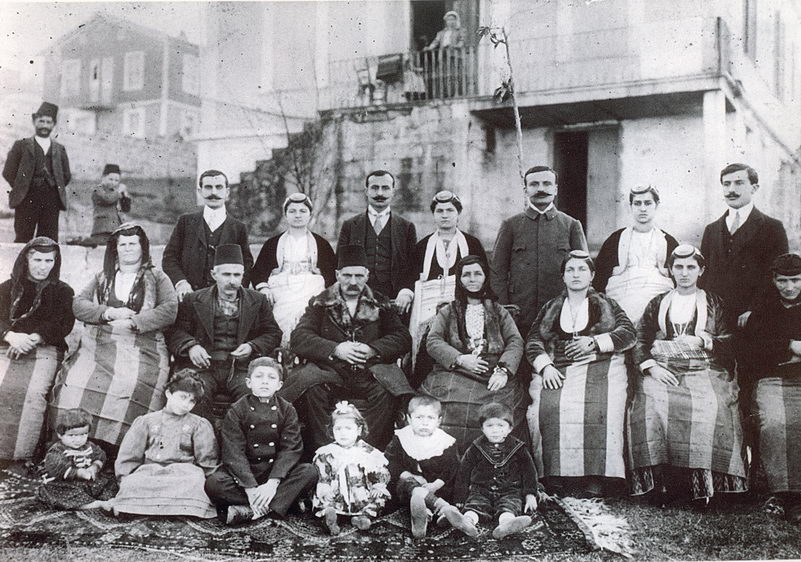ANATOLIAN GREEK CULTURAL DEVELOPMENT:
Greeks and Greek Culture
When Greek is mentioned in Turkish, it is understood as someone who is from the Christian Orthodox sect and speaks Greek. Rum is a term that has survived to this day by being corrupted from the word Romeos (Roman). It has also been used in other meanings depending on the changes in political, economic and cultural meaning throughout history.

The Greeks demonstrated a very broad and effective cultural and educational development during this period. In the 1870s, 26 associations (silogoi) were established in Istanbul. The most important of these was Elinikos Filoloyikos Silogos Konstantinopoleos, which was established in 1861 and worked intensively as a ministry of education. During these years, 15,000 students were studying in 105 schools. In 1844, the Heybeliada Seminary School was established, in 1875, with the financial help of Zappas, Zappion Girls’ High School, in 1881, with the help of Zarifis and other rich people, Fener High School (Megale tou Genous Schole), in 1890, with the help of the banker Zoğrafos, Zografyon Rum School in Beyoğlu. Boys’ High School was built. In 1892, the Trade School was established in Heybeliada, and in 1909, the Language and Trade School was established in Beyoğlu. Also in Beyoğlu, Hacihristos’ Lycee, Kendrikon Girls’ High School, Ayia Triada, Ayios Konstantinos-Ayia Eleni churches were established. During this period, the ban on building churches was also lifted. There were also charitable institutions built with community money. Consisting of about 40 buildings, the Balıklı Greek Hospital came into service in 1753. In 1853, an orphanage was established in Büyükada. A sports club and music association were established in Tatavla, where Greeks lived heavily, in the late 19th century. Brothers Yorgo and Nikolas Alibrantis, who became champions of the “Interim Olympic Games” in 1906, were from this sports club. Some Greeks undertook important government positions. Stavrakis Aristarhis and Spiridon Mavroyenis (Marko Pasha) II. They joined the Basic Law preparation commission established by Abdulhamid. Aleksandros Mavroyenis was sent to Vienna, Ioannis Aristarhis to Berlin, and Grigoris Aristarhis to Washington as ambassador. Konstantinos Muruzis became ambassador in Athens; He represented the Ottoman Empire at the Paris Congress in 1869 and in London in 1871. Aleksandros Karateodoris (1833-1906) was an ambassador in Rome and represented the Ottoman Empire at the Berlin Congress in 1878. K. Musuros effectively defended Ottoman interests as an ambassador in Athens between 1840 and 1848. These Greeks were from a group that was not affiliated with the center of Athens and identified themselves with the Ottoman Empire. The cultural level increased within this rich and active Greek community. Book printing accelerated, and theaters appeared that staged the works of Moliere or Aishilos. The effects of these developments were also seen in the Patriarchate. Starting from 1862, the patriarch began to be elected by the assembly formed by clergy and civilians. This situation was also reflected in the social structure. The 12-member Permanent Community Joint Assembly, 8 of which were elected by the Greeks of Istanbul, began to carry out religious affairs together with the Holy Synod. In three new districts, Galata, Beyoğlu and Tophane, the population of Greeks reached 100,000. It is estimated that the population of Istanbul Greeks in the 1880s was approximately 200,000 after new immigration to Istanbul. Beyoğlu became one of the trade and cultural areas where Greeks were most concentrated. During these years, more than 80 churches and 500 holy springs provided services to the religious. The Greeks brought the Western way of life to Istanbul, especially starting from this period. A measured luxury specific to the bourgeois class, a modern form of entertainment for men and women that goes against traditional rules, freer male-female relations, Western-style clothing, and the importance given to foreign languages, together with Istanbul’s Levantines and foreign nationals, gave the city its cosmopolitan atmosphere.
